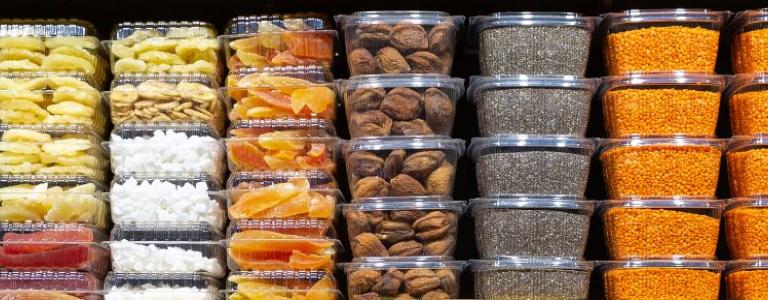Inside INC-5
World leaders convened in Busan, Republic of Korea, for the fifth session of the Intergovernmental Negotiating Committee (INC-5) aiming to finalize the world’s first international treaty to combat plastic pollution. After over seven days of intense negotiations the delegates were unable to agree on a new instrument.
December 1, Busan - "We have not yet reached the summit of our efforts." This was the spirit conveyed by INC Chair Luis Vayas in his opening statement during Sunday evening’s closing plenary. After over seven days of intense negotiations the delegates were unable to agree on a new instrument. They agreed to adjourn INC-5 in Busan, Republic of Korea, and convene a resumed meeting at a later date.
Although INC-5 did not achieve its objective of delivering a new treaty to the world, progress was still made towards this aim. “We are not leaving Busan discouraged,” shared the EU, encapsulating the mood during the closing plenary. Several delegations spoke, with Mexico and Rwanda speaking on behalf of 95 and 85 countries, respectively, to call for a strong treaty, which would include articles on production, hazardous plastics, and chemicals of concern.
To receive free coverage of global environmental events delivered to your inbox, subscribe to the ENB Update newsletter.
November 30, Busan - States reconvened behind closed doors for informal consultations throughout the day. Basing their discussions on a Non-Paper containing draft text of the Chair of the INC, delegates concentrated their efforts on “topics with high convergence,” stating their “red lines.” With one day left to beat the scheduled deadline to conclude negotiations, the INC-5 outcome remains to be seen.
Read the full Earth Negotiations Bulletin daily report.
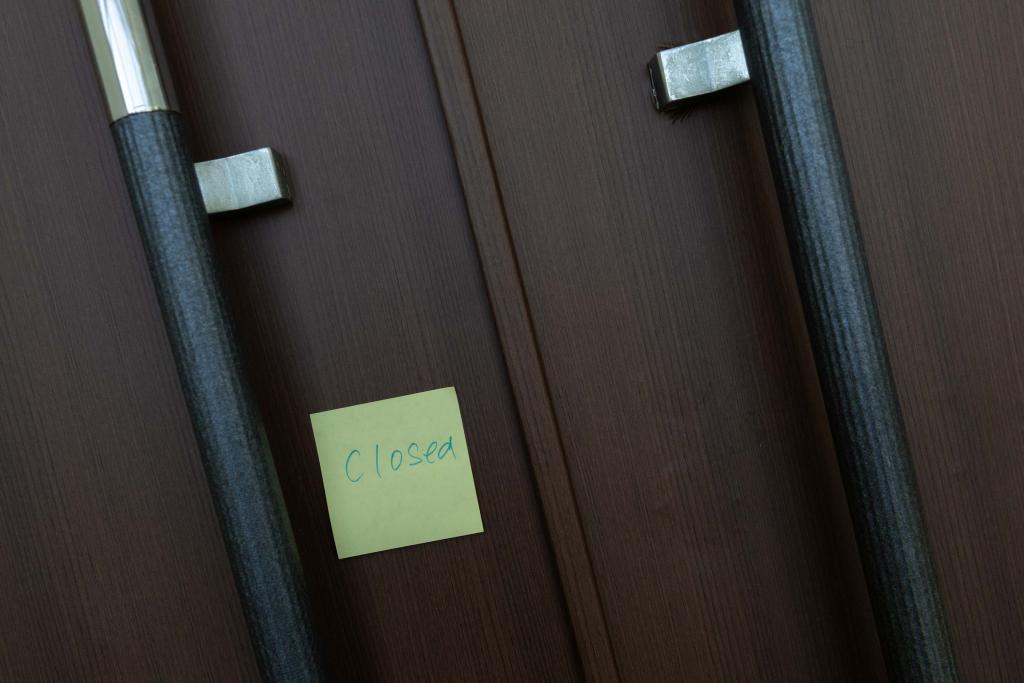
November 29, Busan - Closed-door meetings were the order of the day as the fifth session of the INC-5 reconvened on Friday.
During the morning, in a states-only consultation with the INC Chair, three issues were on the table:
- products and chemicals of concern as used in plastic products (draft article 3);
- supply (draft article 6); and
- finance, including the establishment of a financial mechanism (draft article 11).
Want to dig deeper into today's talks? Read the full Earth Negotiations Bulletin daily report.
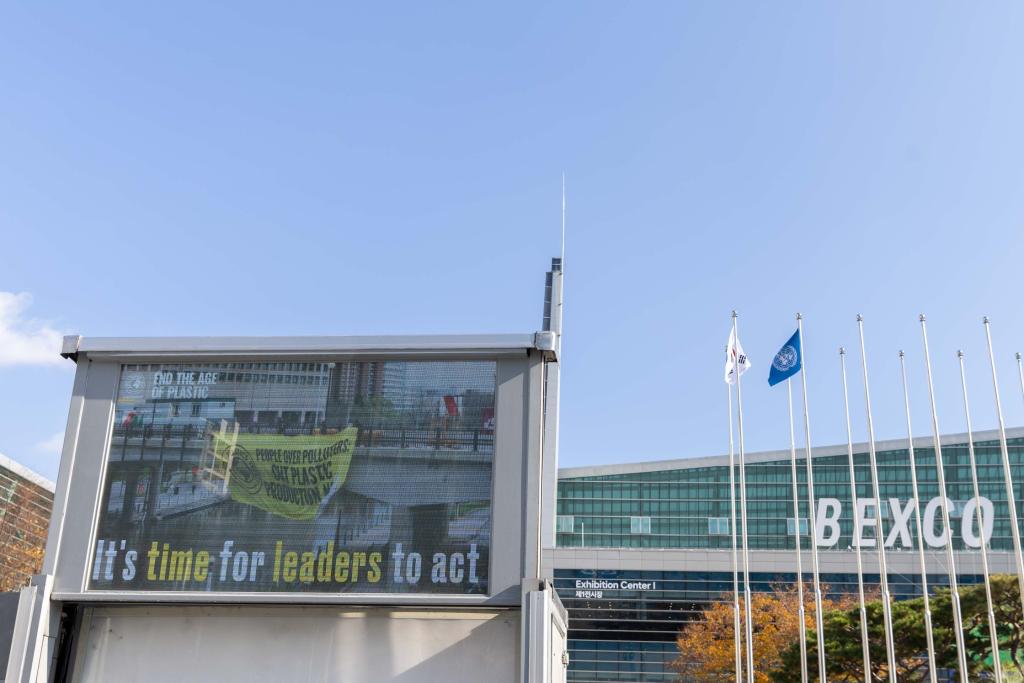
November 28, Busan - Delegates worked at a frenetic pace to make progress at the midway point of the fifth session of the Intergovernmental Negotiating Committee (INC-5) to develop an international legally binding instrument (ILBI) on plastic pollution, including in the marine environment.
Basing their discussions on the INC Chair’s Non-Paper, while making reference to the compilation of draft text (UNEP/PP/INC.5/4), they also considered states’ submissions as the basis of negotiations for some parts of the text. All four contact groups met for at least six hours during the day and into the night.
Want to dig deeper into today's talks? Read the full Earth Negotiations Bulletin daily report.
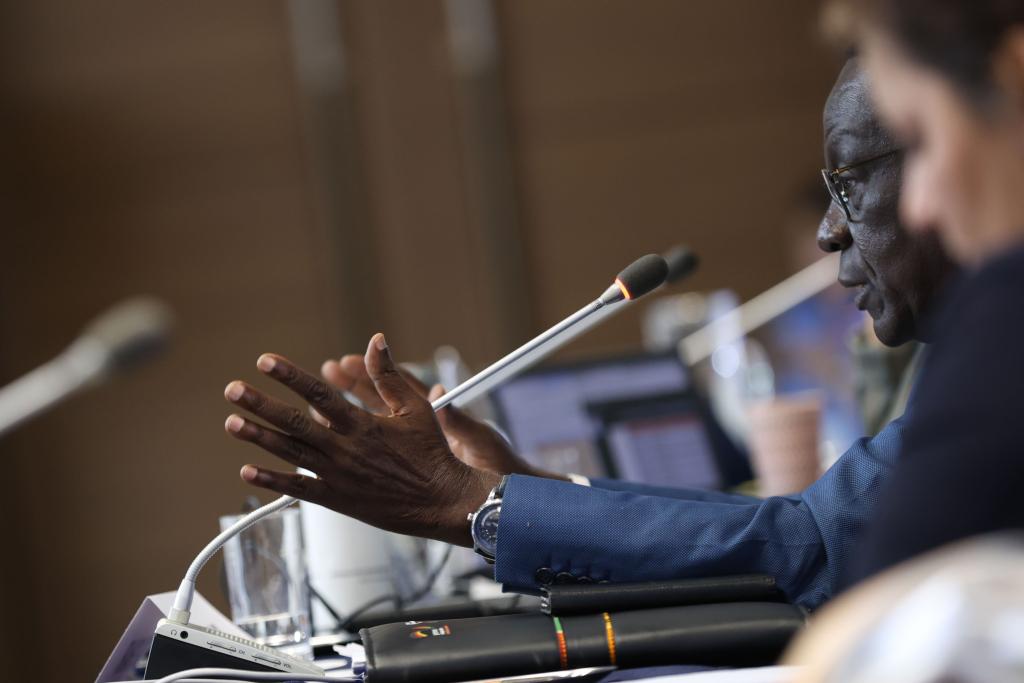
November 27, Busan - Money was a central concern for delegates as they met on the third day of the fifth session of the Intergovernmental Negotiating Committee (INC-5) to develop an international legally binding instrument (ILBI) on plastic pollution, including in the marine environment. The other big-ticket item that held delegates’ attention was technical. Which products and chemicals could be regulated by the new treaty? How will design standards for plastic products be handled? How will the treaty address plastic production and supply issues?
Want to dig deeper into today's talks? Read the full Earth Negotiations Bulletin daily report.
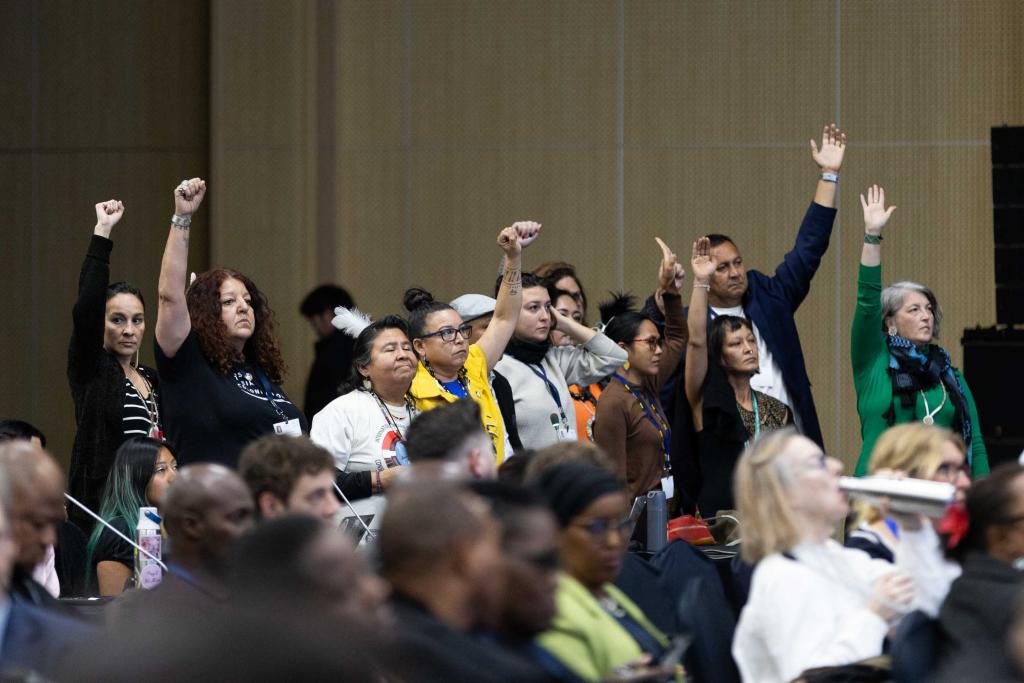
November 26, Busan - Drilling down into the core of what the new treaty to end plastic pollution will cover and how it will operate took up the bulk of the day as delegates gathered for the second day of the fifth session of the Intergovernmental Negotiating Committee (INC-5) to develop an international legally binding instrument (ILBI) on plastic pollution, including in the marine environment.
Delegates engaged in candid discussions, sharing views on the INC Chair’s Non-Paper, while also referring to the compilation of draft text of the ILBI on plastic pollution, including in the marine environment (UNEP/PP/INC.5/4). All four contact groups met at various points during the day.
Want to dig deeper into today's talks? Read the full Earth Negotiations Bulletin daily report.
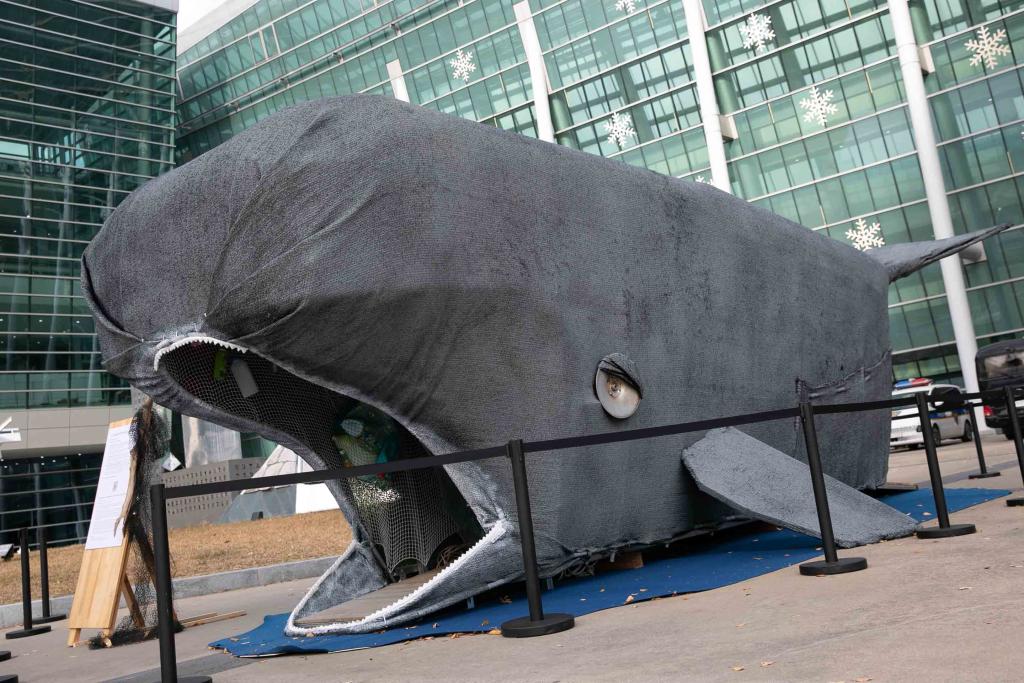
November 25, Busan - With seven days left to agree on a new treaty text on plastic pollution, Kim Wan Sup, Minister of Environment, Republic of Korea, set the stage for the final scheduled round of negotiations, stressing that “we must end plastic pollution before plastic pollution ends us.” As science continues to reveal the layers of impact due to the burden of plastic pollution, including to human health and the Earth’s ecosystems, this statement struck a chord with many delegates on the first day of the fifth session of the Intergovernmental Negotiating Committee (INC-5) to develop an international legally binding instrument (ILBI) on plastic pollution, including in the marine environment.
In his opening remarks, INC Chair Luis Vayas Valdivieso (Ecuador) emphasized that adopting an agreement to end plastic pollution is possible at this meeting, and urged delegates to show “unwavering commitment, relentless effort, and bold political will” to this end.
Follow daily coverage from our Earth Negotiations Bulletin.
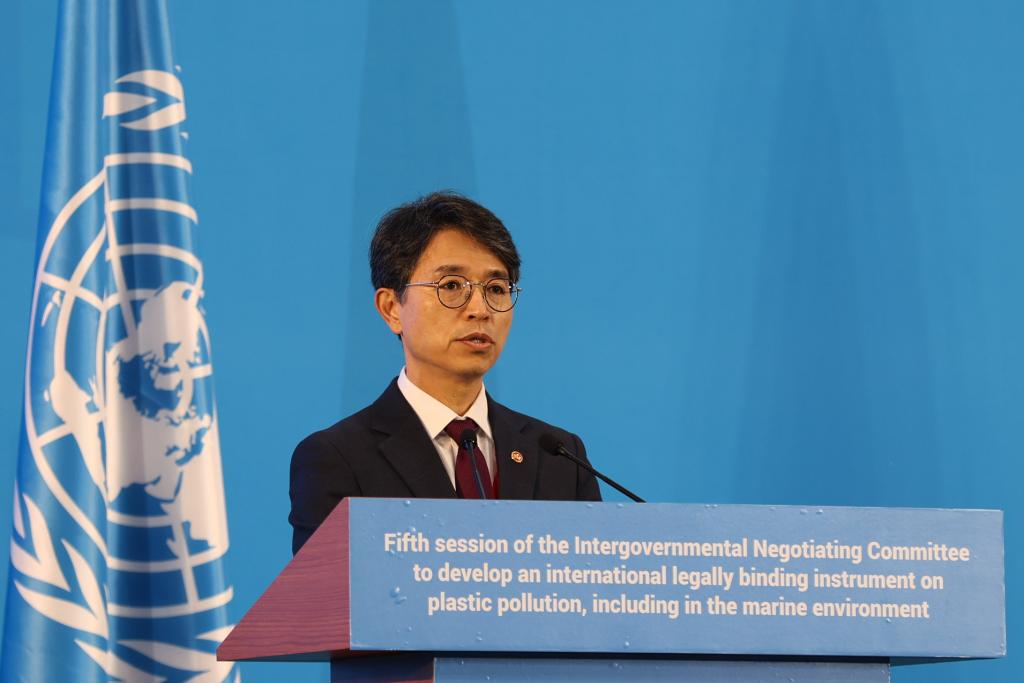
IISD’s Five Key Expectations for the Plastics Treaty
IISD's Earth Negotiations Bulletin Reporting On-Site
For over 30 years, Earth Negotiations Bulletin has provided authoritative, in-depth reporting on United Nations negotiations involving the environment and development. Our reporters will be covering each day of the talks in Busan, explaining what's happening and what it means for climate action.
Read MoreOur Insights

What to Expect at Plastics INC-5
Q and A with Tallash Kantai of Earth Negotiations Bulletin on INC-5.

How Will a Global Plastics Treaty Impact Trade?
A global plastics treaty may influence trade by imposing new regulations on plastic production, fostering recycling efforts, and promoting sustainable alternatives while addressing potential challenges for developing economies.
We all have to keep plastics out of our lakes and rivers
In an opinion piece, IISD-ELA's Pauline Gerrard writes that researchers in Toronto found an average of 123 microplastics in one serving of freshwater fish, vastly more than the nine microplastics ingested in a serving of grocery store Alaska pollock found in a study by the same authors published earlier this year.
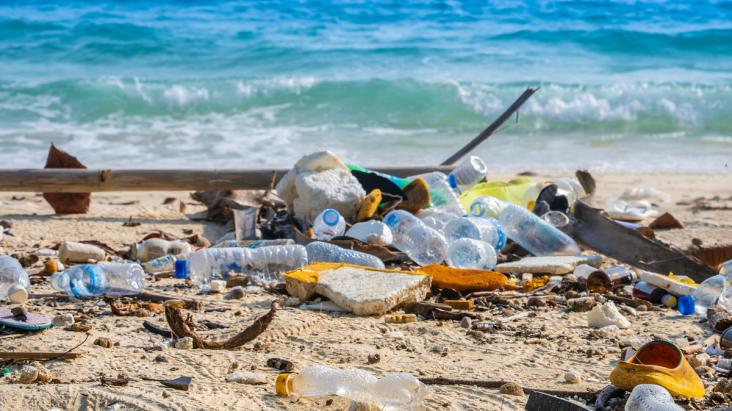
Avoiding a Trade Crisis as Countries Look to Phase Out Plastic Pollution
Why efforts to curb plastic pollution need to consider potential trade complications.
About INC-5
The United Nations Environment Assembly (UNEA), the highest decision-making body on environmental matters, resolved in March 2022 to develop a legally binding instrument to end plastic pollution, including in marine environments. This resolution initiated the INC process, giving delegates two years to negotiate an agreement. Since then, the Intergovernmental Negotiating Committee has met four times, with INC-5 marking a crucial step towards finalizing this global treaty.
Find out more